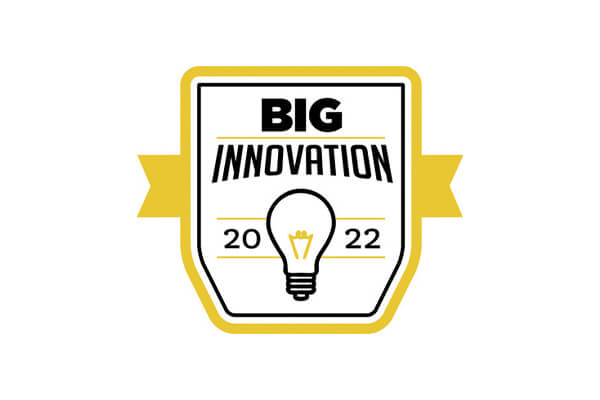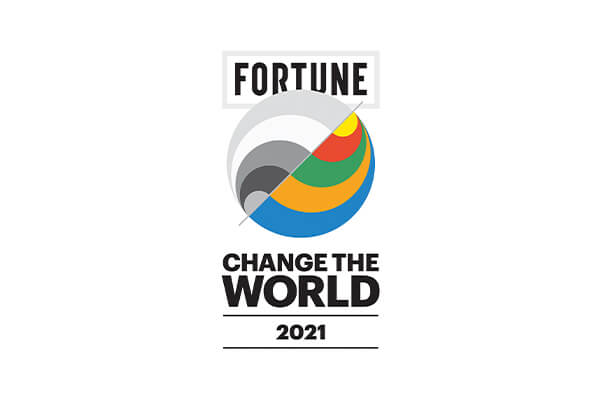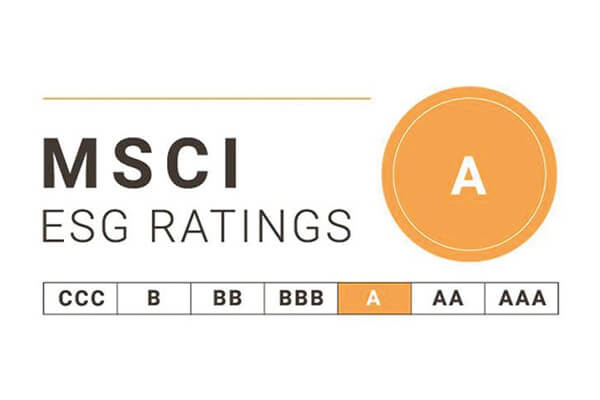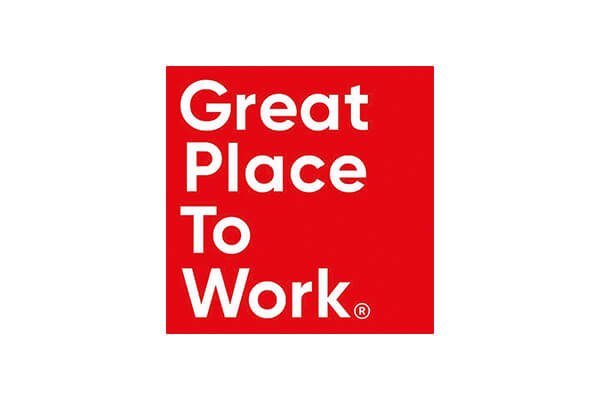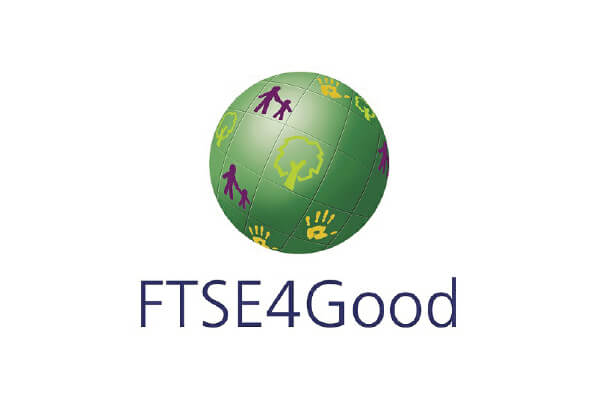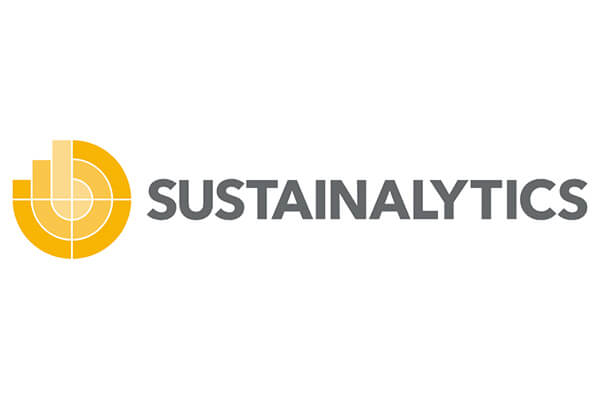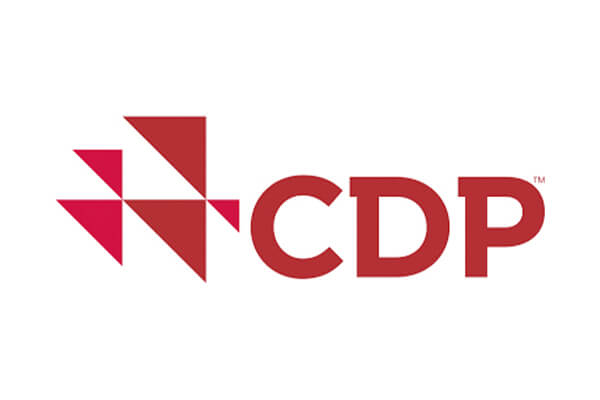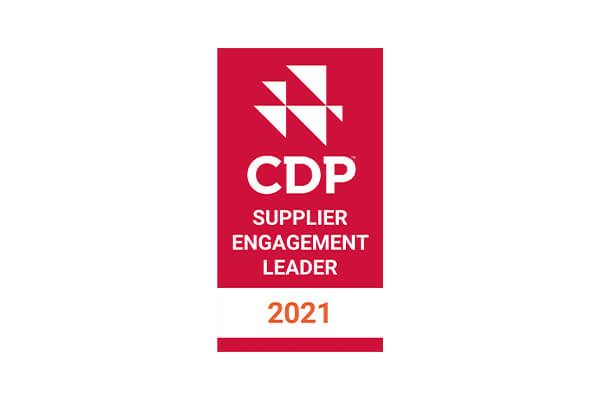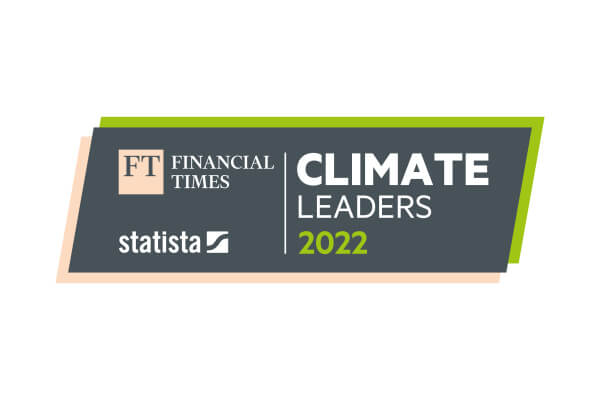Sustainable business
Environmental, social and governance
We’re helping people to thrive, at every stage of their financial journey, by empowering them to make the most of their data to transform their lives.
Building trust through our strong focus on Environmental, Social and Governance (ESG) risks and opportunities is critical to realising this ambition, growing our business and fulfilling our purpose of creating a better tomorrow.
82 million
Our social innovation products have reached 82 million people since 2013 – keeping us on track to meet our goal of 100 million by 2025 – and generated US$162m in revenue.
Great Place to Work
We have been certified with Great Place to Work status in 20 countries in our first year participating.
87 million
We have connected with 87 million people since 2020 through our United for Financial Health programme, supporting diverse communities through financial education partnerships with over a dozen NGOs across our regions. We are on track to meet our target of 100 million by 2024.
44%
We have cut our Scope 1 and 2 market-based emissions by 44% since 2019 on the way to our 1.5°C-aligned science-based target of 50% by 2030, and are offsetting 40% of our remaining FY22 Scope 1 and 2 emissions. We engaged with suppliers to better understand and reduce our Scope 3 emissions, and earned a place on the 2021 CDP Supplier Engagement Leaderboard after obtaining an ‘A’ Supplier Engagement Rating. We are currently looking to further our ambitions towards net zero.
Our Global
Data Principles
Our Global Data Principles embody five key values: security, accuracy, fairness, transparency and inclusion. They build on our previous Global Information Values to guide how we manage and use data, build products and conduct our business around the world.
As part of our United for Financial Health programme we partnered with Grammy Award-winning recording artist Lecrae to create a YouTube series on financial education that reached over 10 million people.
Watch Lecrae’s Protect The Bag
Our sustainable business strategy
Financial health
- Reach 100 million people through social innovation products by 2025 (starting from 2013)
- Connect with 100 million people through our United for Financial Health programme by 2024 (starting from 2020)
Diversity
- Increase the proportion of women in our executive committee and direct reports to 30%, in our senior leaders to 40%, in our mid-level leaders to 42% and in our total workforce to 47%, by 2024
Environment
- Become carbon neutral in our own operations by 20301
- Science-based target:
- Scope 1 and 2 (1.5ºC scenario): Reduce absolute Scope 1 and 2 emissions by 50% by 2030 (from 2019)
- Scope 3 (2ºC scenario): Reduce Scope 3 emissions from Purchased Goods and Services, Business Travel, and Fuel-and-energy-related activities2 by 15% by 2030 (from 2019)
- Offset 100% of our Scope 1 and 2 emissions by 20251
Our priorities
Our sustainable business strategy is informed by an assessment of our most material ESG issues, based on consultation with senior leaders who represent different functions and regions across the business. Regular engagement with investors and other stakeholders helps us refine our priorities. See pages 22-25 for more on how we engage with and create value for our stakeholders.
We can add the most value to society by improving financial health for all, and we have made this our sustainable business strategic priority. Helping people improve their financial health enables them to get fairer access to credit and the essentials they need to transform their lives – from having a home or building their business to paying for education and healthcare. This in turn drives social and economic development, contributing to three of the United Nations Sustainable Development Goals, which include helping to lift people out of poverty (as outlined below).
Our focus on improving financial health also supports the long-term success of our business by strengthening our reputation and stakeholder relationships, driving innovation, generating new revenue streams, and creating potential new consumers for us and our clients by increasing financial inclusion.
Delivering these positive impacts for society and our business depends on our ability to access and use data from individuals and businesses around the world. Treating that data with respect is essential to maintain trust (see page 50) – and failure to keep it secure is one of our biggest business and ESG risks (see page 71).
One of our core beliefs is that how we work is as important as what we do, and our strategy is built on a strong culture of corporate responsibility. We aim to inspire and support our people by embracing and developing diverse talent, and creating an inclusive working environment (see page 56). We are committed to working with integrity (see page 62), and we strive to do our part to protect the environment and tackle climate change (see page 64).
This responsible culture also helps us recruit and retain people with the expertise and experience we need to grow our business and meet our sustainable business goals.
Contributing to the United Nations Sustainable Development Goals
We align our sustainable business focus with the United Nations Sustainable Development Goals. Through an extensive review of the Sustainable Development Goals in 2020, we identified three specific targets where we can make the most meaningful contribution through our strategic priority to improve financial health.
We also contribute to several of the other Sustainable Development Goals, for example through our commitments to improve diversity and inclusion (see page 56), tackle modern slavery (see page 63) and reduce climate impacts (see page 64).
Target 1.4: By 2030, ensure that all men and women, in particular the poor and the vulnerable, have equal rights to economic resources, as well as access to appropriate new technology and financial services, including microfinance.
Target 8.10: Strengthen the capacity of domestic financial institutions to encourage and expand access to banking, insurance and financial services for all.
Target 9.3: Increase the access of small-scale industrial and other enterprises, in particular in developing countries, to financial services, including affordable credit.
External recognition in FY22
Business Intelligence Group: Experian was recognised as a 2022 BIG Innovation Award winner for delivering innovative products, such as Experian Boost, that help consumers thrive financially
Fortune: Experian is included in Fortune’s ‘Change the World’ list 2021 which honours companies addressing society’s unmet needs
MSCI: ‘A’ rating for ESG investment risk
Great Place to Work: Certified as a Great Place to Work in 20 countries (see page 57 for more employer awards)
FTSE4Good: Experian has been a member of the FTSE4Good ESG index since 2012
Sustainalytics: Experian was recognised as a top ESG performer with a Regional Top-Rated Badge award, based on our Low Risk score of 11.6 for investors
CDP Climate Change: ‘B’ score
CDP Supplier Engagement Rating (SER): ‘A’ rating. Experian was recognised as a Supplier Engagement Leader in the 2021 CDP Supplier Engagement Leaderboard –the top 8% of companies who completed the full climate questionnaire in 2021
Financial Times: Experian was identified as one of Europe’s Climate Leaders 2022 by the Financial Times and Statista

